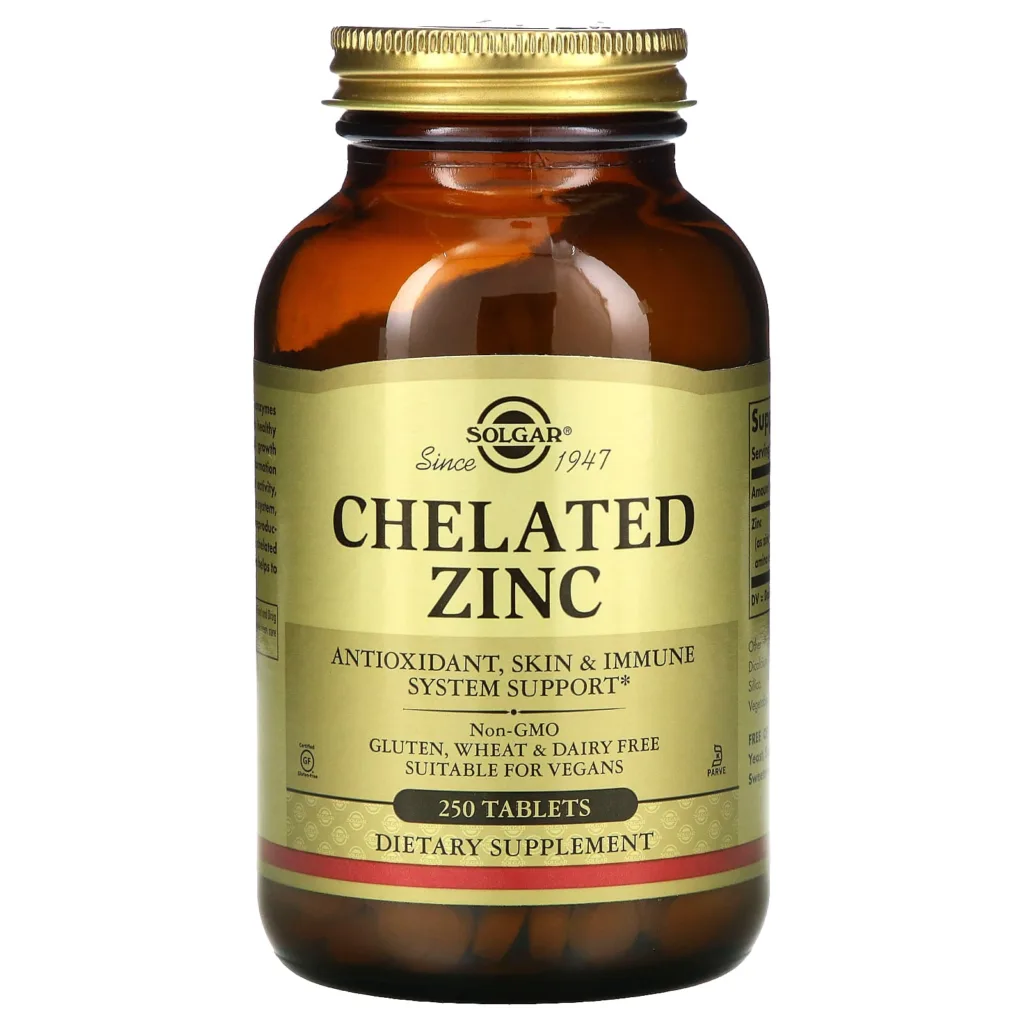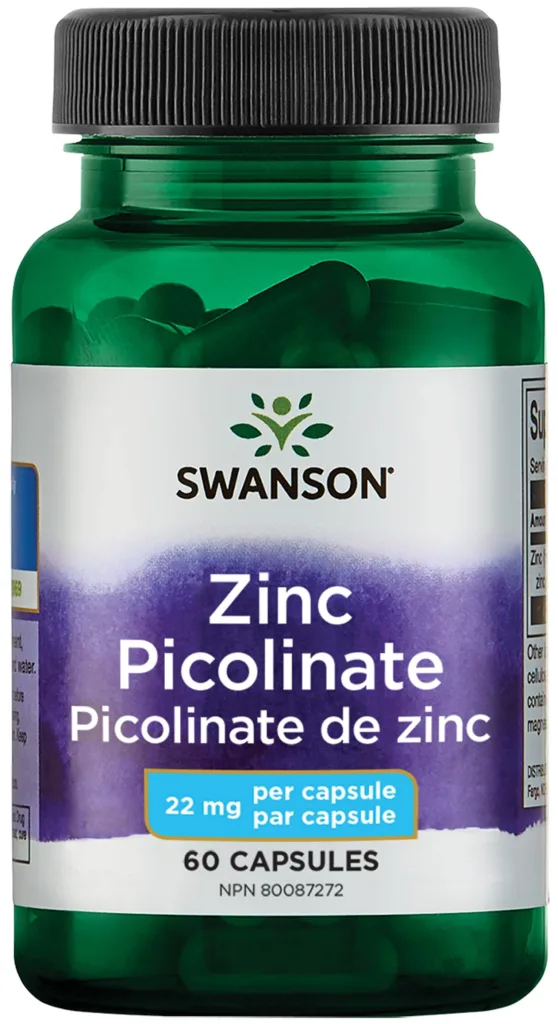When it comes to zinc supplements, there is a lot of confusion as to which form is better – chelated zinc or regular zinc? Both forms are beneficial for your health and offer different advantages. In this blog post, we will discuss the differences between chelated zinc and regular zinc, so you can make an informed decision when choosing a supplement.
Zinc is an essential mineral that plays an important role in many bodily functions including immunity, growth and development, metabolism, and more. The body needs zinc to produce healthy cells and hormones, metabolize carbohydrates and proteins, and protect agaist oxidative damage. Zinc also helps regulate the immune system.
Regular zinc supplements are typically found in the form of zinc sulfate or gluconate. These forms of zinc are not very bioavailable, meaning they are not completely absorbed by the body. As a result, you may need to take higher doses of regular zinc supplements in order to get the same benefits as chelated forms of zinc.
Chelated forms of zinc include picolinate, citrate, acetate, glycerate, and monomethionine. Chelated minerals are bound with organic molecules that help increase their absorption rate in the body. This makes chelated forms of minerals much more bioavailable than regular minerals like sulfate or gluconate which can be difficult for the body to absorb completely. Because of this increased absorption rate with chelated forms of minerals like zinc, you may need smaller doses compared to regular forms in order to get the same benefits from them.
In addition to increased bioavailability, chelated forms of minerals can be better tolerated by those who experience digestive issues such as nausea or stomach pain when taking regular mineral supplements like sulfates or gluconates. For this reason, if you have a sensitive stomach or find that taking regular mineral supplements causes digestive discomfort then opting for chelated forms may be beneficial for you.
At the end of the day there isn’t one right answer as to which form is better – it ultimately depends on what works best for your individual needs. If you want increased bioavailability then choosing a chelated form may be best but if you don’t experience digestive issues then either form should suffice!
What is the Best Form of Zinc Supplementation?
The best form of zinc to take depends on individual needs and preferences. Zinc picolinate, zinc citrate, zinc acetate, zinc glycerate, and zinc monomethionine are all easily absorbed forms of zinc. Generally, these are considered superior to other forms such as zinc sulfate for bettr absorption and less stomach irritation. For those who experience stomach upset from taking zinc sulfate, a different form such as zinc citrate may be preferable. Additionally, some people may prefer a specific form of zinc due to its taste or other factors. Ultimately, it’s important to speak with your doctor or healthcare provider to determine what the best option is for you.

Is 50 mg of Chelated Zinc an Excessive Dosage?
50 mg of chelated zinc is considered to be too much. Chelated zinc is more easily absorbed by the body, so taking 50 mg could cause a person to exceed the recommended daily intake of 40 mg. Taking too much zinc can lead to stomach symptoms and could potentially cause other health issues as well. It’s best to check with your healthcare provider if you are considering taking any type of zinc supplement.
Taking Chelated Zinc: When is the Best Time?
It is recommended that chelated zinc be taken at least one hour before or two hours after a meal. This ensures that it can be properly absorbed by your body and get to work more efficiently. However, if you experience any stomach discomfort when taking chelated zinc on an empty stomach, you can take it with food. It is important to let your healthcare professional know if you are taking the chelated zinc with food, as this may affect how quickly and effectively the supplement works.
The Meaning of Chelated Zinc
Chelated zinc is a type of supplement that provides the body with a form of zinc that is more easily absorbed than other forms. This is achieved by bonding the zinc to a chelating agent, which is an organic compound. Chelating agents allow metal ions, such as those found in zinc supplements, to become more soluble in water and therefore easier for the body to absorb. By taking a chelated zinc supplement, the user can receive all the benefits of zinc without having to take large doses of it.
Comparing the Benefits of Zinc Picolinate and Chelated Zinc
The best form of zinc supplementation depends on the individual and their specific needs. Zinc picolinate and zinc chelate (such as zinc bisglycinate) are both commonly used forms of supplemental zinc. In general, chelated forms of minerals are generally better absorbed than non-chelated forms. For example, studies have shown that zinc bisglycinate is better absorbed than zinc picolinate in both healthy subjects and those with impaired digestion. Additionally, research suggests that it is less likely to cause gastrointestinal distress compared to other forms of zinc supplements. Ultimately, it is best to consult with a health care provider for advice on wich form of zinc supplementation is best for you.

How Often Should I Take Chelated Zinc?
The most effective way to take chelated zinc is to divide the daily dose into two or three smaller doses taken throughout the day. The total dose of chelated zinc should not exceed 30 mg per day. Taking too much can cause side effects such as nausea, vomiting, and diarrhea. It is also important to take chelated zinc with meals, as it helps absorption of the mineral. If you are taking a multivitamin or mineral supplement that contains zinc, you should check with your doctor before taking additional zinc supplements.
Recommended Daily Intake of Chelated Zinc
It is recommended that adults take 15–30 mg of elemental zinc per day. When taking chelated zinc, it’s important to read the label of your supplement carefully to determine the total amount of zinc present. Generally, chelated zinc contains a lower concentration of elemental zinc than other forms, such as oxide or sulfate. For example, if the label states that your supplement contains 25 mg of chelated zinc, this may only translate to 5–7 mg of elemental zinc. Therefore, it would be ncessary to take multiple tablets in order to meet the recommended daily dosage for adults. As always, discuss any supplementation with your healthcare provider prior to use.
Taking Zinc: Morning or Night?
It is generally recommended to take zinc either in the morning or at least two hours after a meal. Taking zinc on an empty stomach can help with its absorption, but it can also cause stomach upsets. Therefore, if you experience any discomfort after taking zinc on an empty stomach, it’s best to take it with a meal instead. It is not recommended to take zinc late at night as this may interfere with your sleep patterns.
Benefits of Taking Zinc at Night
Taking zinc at night can provide a variety of benefits. Zinc is an important mineral that helps to regulate the body’s natural circadian rhythms, which are responsible for controlling our sleep-wake cycle. It has been shown to help reduce wake-ups in the night and improve the vividness of dreams. Additionally, zinc has a calming and antidepressant effect that can help relax the body and mind before bedtime. It is also considered an excellent, safe sleep aid. Therefore, taking a daily dose of zinc at night can be beneficial in helping you get a good night’s rest.

The Benefits of Chelated Zinc
The best form of chelated zinc is zinc glycinate, which is a form of zinc bound to the amino acid glycine. This chelated form of zinc has been found to be better absorbed than many other forms, making it an ideal choice for thoe seeking the health benefits associated with zinc supplementation. NOW Zinc Glycinate Softgels contain 30 mg of zinc glycinate per softgel and are an excellent option for those looking to supplement their diet with this important mineral. Other forms of chelated zinc may also be beneficial, so it’s important to research your options and speak with a doctor or nutritionist before starting any supplement regimen.
The Best Type of Zinc for Immune Support
Zinc is an essential mineral that is important for many aspects of health, including immune system support. The best form of zinc for immune support is zinc picolinate, which has been shown to be better absorbed and more bioavailable than other forms of zinc. Zinc picolinate also has a higher affinity for binding proteins in the body, which can increase its effectiveness. Other forms of zinc, such as zinc gluconate and zinc citrate, are also good options for immune system support. Additionally, supplementing with chelated forms of zinc, such as zinc glycinate or zinc bisglycinate, may proide additional benefits due to their enhanced absorption and bioavailability.
Conclusion
In conclusion, chelated zinc is a form of zinc that is bound to a molecule in order to make it more easily absorbed by the body. It is generally better tolerated than other forms of zinc, such as zinc sulfate, and may be taken with or without food. Zinc is an essential mineral for many bodily functions, so it may be beneficial to take either chelated zinc or other forms of zinc in order to meet your body’s requirements. However, it is important to speak with your healthcare provider befoe taking any supplements and to not exceed the recommended daily allowance of 40 mg.
